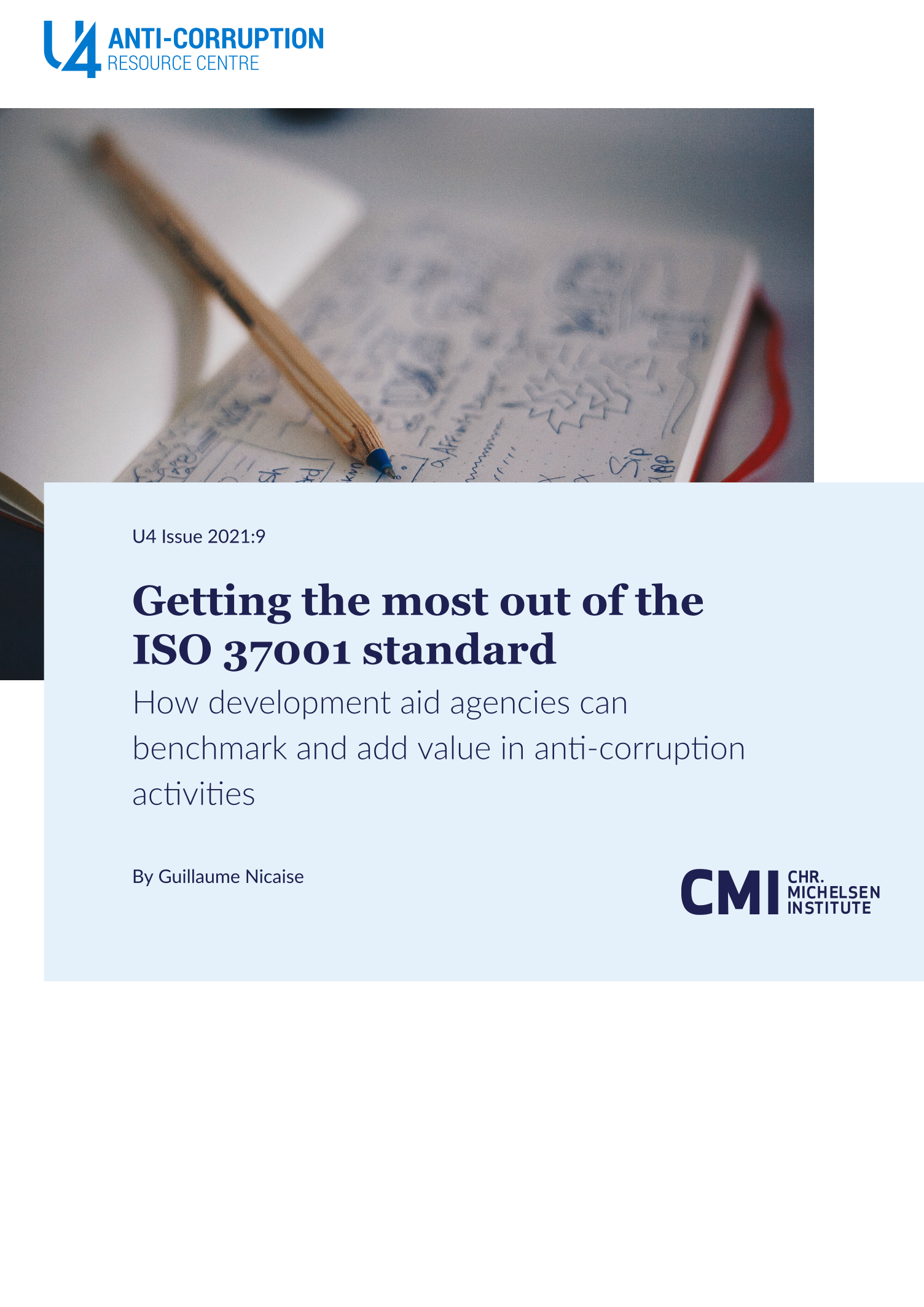Main points
- ISO 37001 provides a summary of the best tools for bribery risk management. It also aims to establish a framework for compliance with national anti-bribery laws. Its requirements offer a benchmark for organisations to check or build an anti-bribery management system (ABMS). In this respect, it can be a valuable tool to uncover and limit the risk of corruption. It can improve the business environment, good governance, and development issues.
- However, the full implementation of an ABMS based on ISO 37001 and its certification is unlikely to be of interest to aid agencies. Time and budget constraints, lack of expertise in this area, as well as governance issues, would impede its full deployment. Aid agencies working in developing countries need ‘quick wins’ and to prioritise limited resources towards programme activities.
- Despite this, the ISO 37001 standard could be useful for development aid agencies at the headquarters level. It would allow them to define or improve an anti-corruption strategy. It could also help agencies think about how to manage corruption risks at the operational level. For example, it can provide guidance for due diligence operations (especially for cash transfers or core support to non-governmental organisations).
- ISO 37001 certification might additionally be useful for development agencies involved in multi-stakeholder partnerships, and in pooled funds or blended finance schemes. This is especially so when they are working in high bribery-risk contexts. In such cases, agencies can recommend ISO 37001 certification to their partners.



